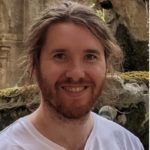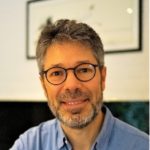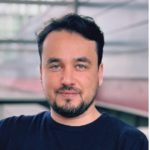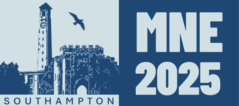Tutorials
Implementing Resilience into ICTs
15/9/2025 - AM Slot (Tutorial A)
Abstract: In the quest to enhance resilience within the Information and Communication Technology (ICT) sector, it is essential to consider various figures of merit that influence its potential sustainability. Key factors include scaling laws, socio-economic and environmental impacts, the use of critical materials, the management of electronic waste, and the application of life cycle thinking.
To address these challenges, several strategies can be explored. One approach involves examining the notion of progress and exploring the R-framework (10Rs strategies) through various case studies. These may include the re-manufacturing of printed circuit boards (PCBs), the repurposing of smartphones, and the development of ‘low-tech’ metrology solutions, etc. By focusing on these areas, we can foster a more resilient and sustainable ICT sector that effectively addresses both current and future challenges.
About the speakers

Professor Sébastien Toussaint holds a Master’s degree in Physical Engineering, which he obtained in 2014, followed by a PhD degree in 2018. His doctoral thesis focused on low-temperature experiments involving various devices based on 2D electron systems, primarily utilizing scanning gate microscopy to gather local-scale information about electronic systems. After gaining valuable industrial experience in the particle accelerator sector, he joined Professor Raskin’s group as a senior researcher. He also delivers invited lectures in a program jointly organised by KULeuven and UCLouvain. Currently, his research centers on ‘low-tech’ environmental metrology and strategies for incorporating resilience into the value chain of ICT-related products, with a particular emphasis on the strategies reframing their life cycle.

Professor Jean-Pierre Raskin received the M.S. and PhD degrees in applied sciences from Université catholique de Louvain (UCLouvain), Louvain-la-Neuve, Belgium, in 1994 and 1997, respectively. In 1998, he joined the EECS Department of The University of Michigan, Ann Arbor, USA, for a post-doc of two years. In 2000, he joined the Microwave Laboratory of UCLouvain, Louvain-la-Neuve, Belgium, as Associate Professor, and he has been a Full Professor since 2007. From September 2009 to September 2010, he was visiting professor at Newcastle University, Newcastle Upon Tyne, UK. His research interests are the modeling, wideband characterization and fabrication of advanced SOI MOSFETs as well as micro and nanofabrication of MEMS / NEMS sensors and actuators, including the extraction of intrinsic material properties at nanometer scale. He is involved in the development of a more sustainable electronics. He has been managing a Chair of Excellence in eco-innovation at CEA-Leti since January 2024.
He has been IEEE Fellow since 2014. He received the Médaille BLONDEL 2015, the SOI Consortium Award 2016, the European SEMI Award 2017, the Médaille AMPERE 2019, the Georges Vanderlinden Prize 2021 and the IET Achievement Medal in Electronics 2022, in recognition in his vision and pioneering work for RF SOI. He is author or co-author of more than 400 scientific journal articles.
He has been elected member of the Royal Academy of Belgium in 2023.
Silicon Photonics: A Practical Guide to Photonic Integrated Circuit Design and Applications
15/9/2025 - PM Slot (Tutorial B)
Abstract: This tutorial offers a practical introduction to the design of silicon photonic integrated circuits (PICs) using Process Design Kits (PDKs). Essential concepts in component design, simulation and layout will be covered emphasising how PDKs enable foundry-compatible PIC development for real-world applications in telecommunication, Biosensing, and emerging fields such as quantum photonics.
About the speakers

Dr Emre Kaplan is a Senior Enterprise Fellow in the Optoelectronics Research Centre (ORC) at the University of Southampton. He leads the design and test team at CORNERSTONE including the Process Design Kit (PDK) development of all technology platforms. He received his MSc degree in Electronics Engineering from the University of Bologna and his PhD from the University of Ferrara, in Italy in the field of Integrated Photonics. He has ten years of experience in the design of photonic integrated circuits on Silicon-on-Insulator, Silicon Nitride, and Indium Phosphide.
Reducing environmental footprint in microelectronics based on LCA
15/9/2025 - PM Slot (Tutorial C)
Abstract: In order to move towards more sustainable microelectronics, an effective first step is to adress the environmental impacts. To do this, Life Cycle Assessment (LCA) is a powerful tool for evaluating the environmental impacts of a system and thus identifying opportunities for eco-design. The LCA methodology applied to microelectronics will be outlined, along with case studies that have resulted in impact reduction measures at several levels (processes, technology, infrastructure). Noteworthy is that sustainability in microelectronics extends beyond environmental impacts, and other concepts also merit investigation.
About the speakers

Sophie Gorbana has been a researcher in CEA-Leti’s eco-innovation programme since April 2024. In particular, she carries out life cycle analyses (LCA) of microelectronic components to promote more sustainable solutions. She also is the sustainability advisor for the Optics and Photonics Division. She holds a Master’s degree in Materials Science and Sustainability from both Grenoble Graduate School of Engineering, France and Aalto University, Finland.
How to register for Tutorial?
To sign up for a tutorial, complete the standard registration steps (Click here to go to registration page) and choose your tutorial from the “Workshop” dropdown. If you registered before tutorial tickets became available, click “Edit My Registration,” add the tutorial sessions you want, and then pay the tutorial fee.
